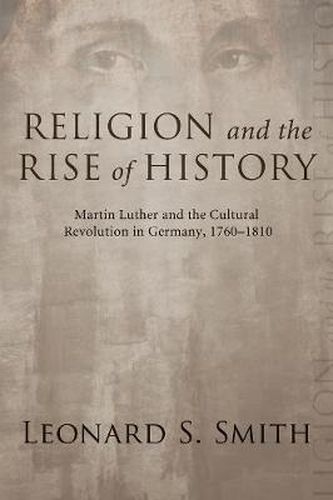Readings Newsletter
Become a Readings Member to make your shopping experience even easier.
Sign in or sign up for free!
You’re not far away from qualifying for FREE standard shipping within Australia
You’ve qualified for FREE standard shipping within Australia
The cart is loading…






This title is printed to order. This book may have been self-published. If so, we cannot guarantee the quality of the content. In the main most books will have gone through the editing process however some may not. We therefore suggest that you be aware of this before ordering this book. If in doubt check either the author or publisher’s details as we are unable to accept any returns unless they are faulty. Please contact us if you have any questions.
As a historical inquiry and synthesis, this intellectual history is the first study to apply the ideal-type or model-building methodology of Otto Hintze (1861-1940) to Western historical thought or to what R. G. Collingwood called The Idea of History, for it contains succinct and useful models for seeing and teaching classical, Christian, and modern professional historiography. Religion and the Rise of History is also the first work to suggest that, in addition to his well-known paradoxical, simul, and/or at-the-same-time way of thinking and viewing life, Martin Luther also held to a way that was deeply incarnational, dynamic, and/or in-with-and-under. This dual vision and a Lutheran ethos strongly influenced Leibniz, Hamann, and Herder, and was therefore a matter of considerable significance for the rise of a distinctly modern form of historical consciousness (commonly called historicism) in Protestant Germany. Smith’s essay suggests a new time period for the formative age of modern German thought, culture, and education: The Cultural Revolution in Germany. This age began in the early 1760s and culminated in 1810 with the founding of the University of Berlin, the first fully modern and modernizing university. This university first became the recognized center for the study of history, however, through the work of Leopold von Ranke (1795-1886). Here the story shows how a young Ranke derived his individualizing way of thinking and viewing life mainly from Luther, how his life-work is the best example in Western literature of the rise of history from a calling to a profession, and how the three-way discussion between Troeltsch, Meinecke, and Hintze concerning the nature of modern historical thought was of central importance for the reorientation of Western social-historical thought in the twentieth century.
$9.00 standard shipping within Australia
FREE standard shipping within Australia for orders over $100.00
Express & International shipping calculated at checkout
This title is printed to order. This book may have been self-published. If so, we cannot guarantee the quality of the content. In the main most books will have gone through the editing process however some may not. We therefore suggest that you be aware of this before ordering this book. If in doubt check either the author or publisher’s details as we are unable to accept any returns unless they are faulty. Please contact us if you have any questions.
As a historical inquiry and synthesis, this intellectual history is the first study to apply the ideal-type or model-building methodology of Otto Hintze (1861-1940) to Western historical thought or to what R. G. Collingwood called The Idea of History, for it contains succinct and useful models for seeing and teaching classical, Christian, and modern professional historiography. Religion and the Rise of History is also the first work to suggest that, in addition to his well-known paradoxical, simul, and/or at-the-same-time way of thinking and viewing life, Martin Luther also held to a way that was deeply incarnational, dynamic, and/or in-with-and-under. This dual vision and a Lutheran ethos strongly influenced Leibniz, Hamann, and Herder, and was therefore a matter of considerable significance for the rise of a distinctly modern form of historical consciousness (commonly called historicism) in Protestant Germany. Smith’s essay suggests a new time period for the formative age of modern German thought, culture, and education: The Cultural Revolution in Germany. This age began in the early 1760s and culminated in 1810 with the founding of the University of Berlin, the first fully modern and modernizing university. This university first became the recognized center for the study of history, however, through the work of Leopold von Ranke (1795-1886). Here the story shows how a young Ranke derived his individualizing way of thinking and viewing life mainly from Luther, how his life-work is the best example in Western literature of the rise of history from a calling to a profession, and how the three-way discussion between Troeltsch, Meinecke, and Hintze concerning the nature of modern historical thought was of central importance for the reorientation of Western social-historical thought in the twentieth century.